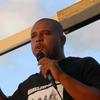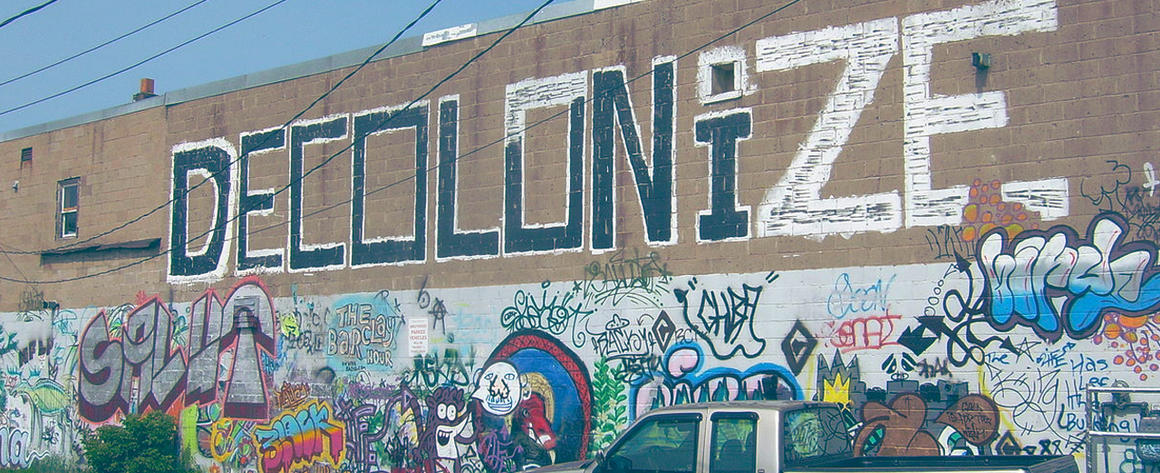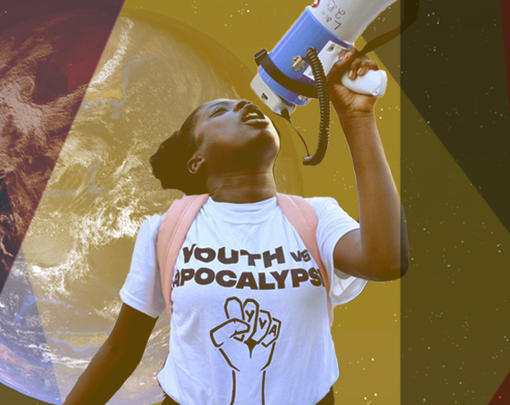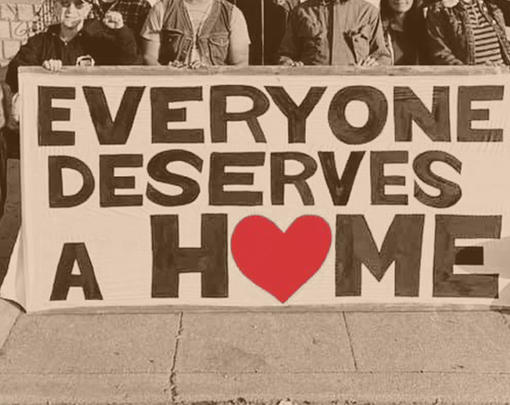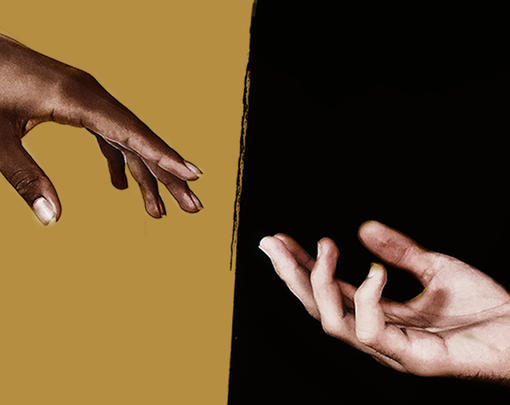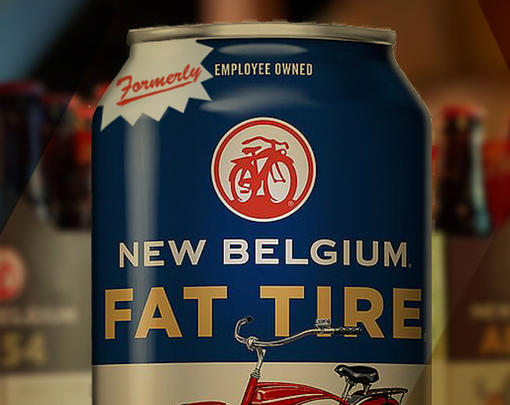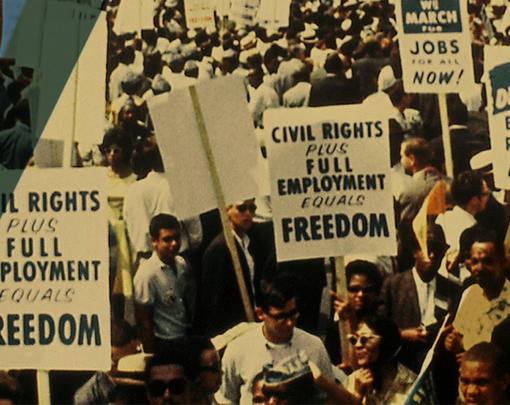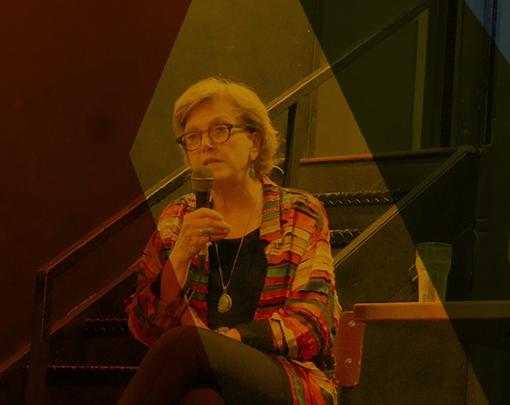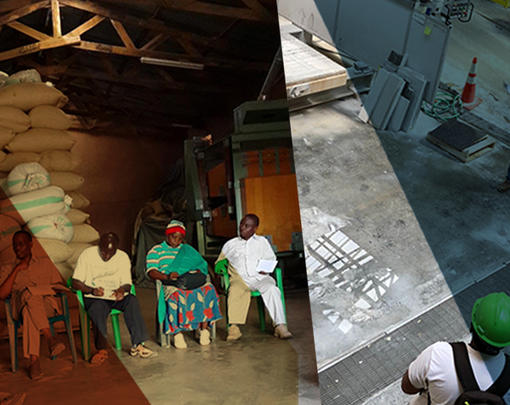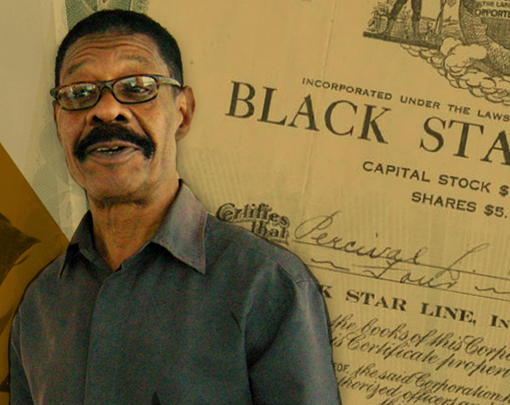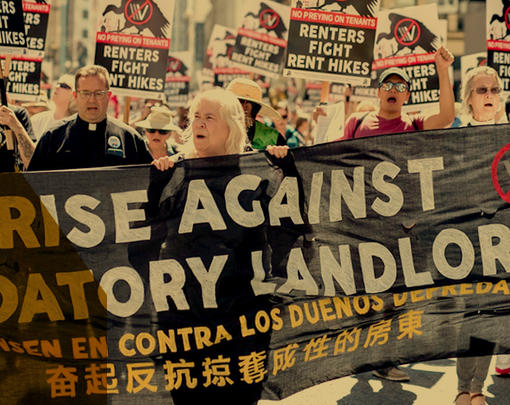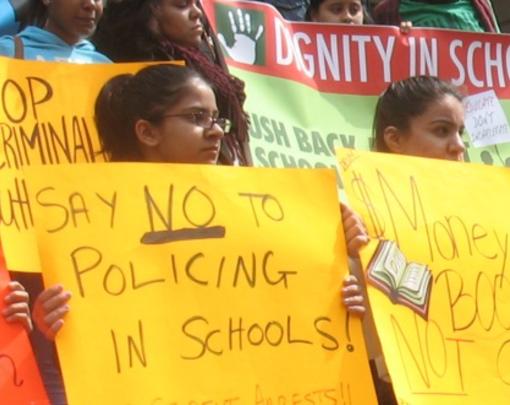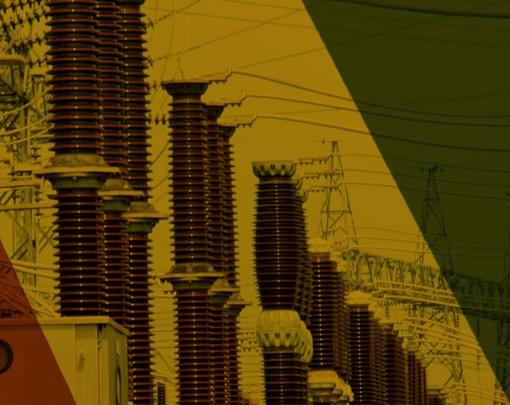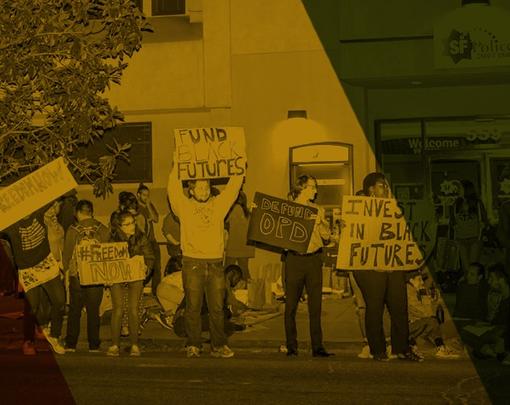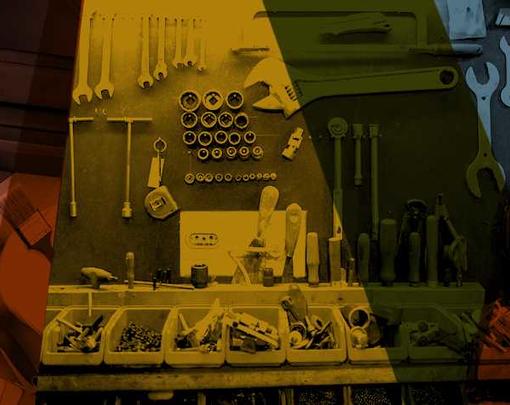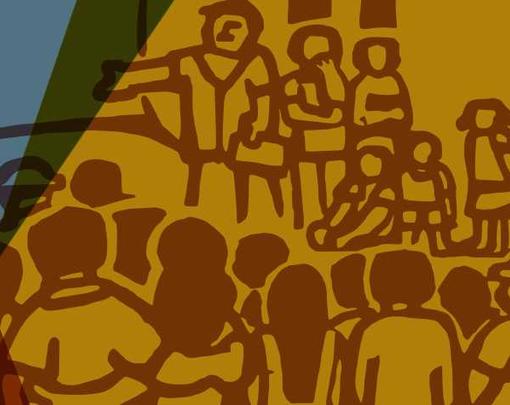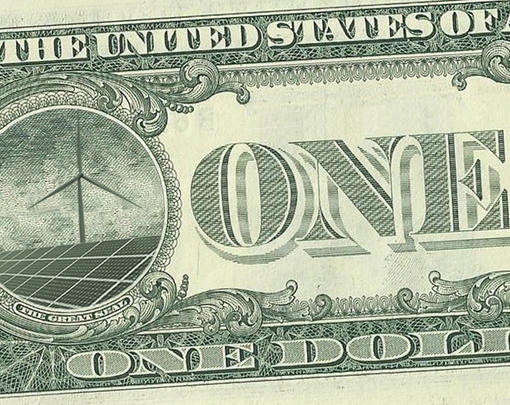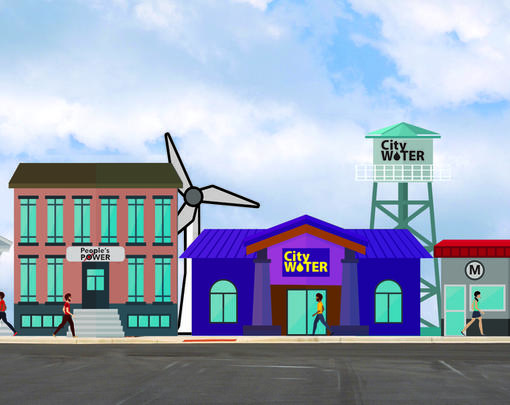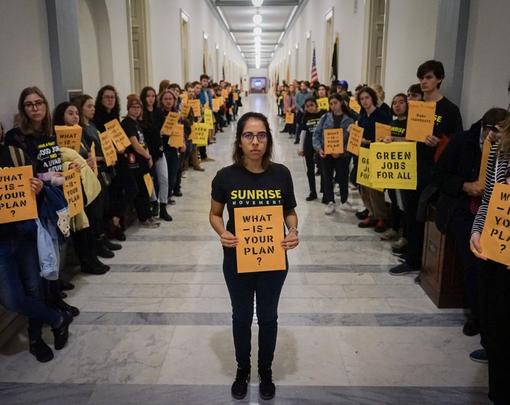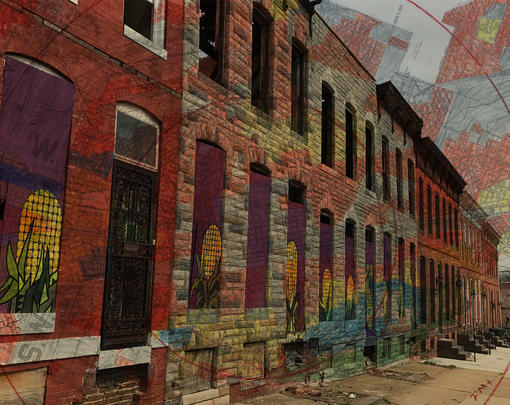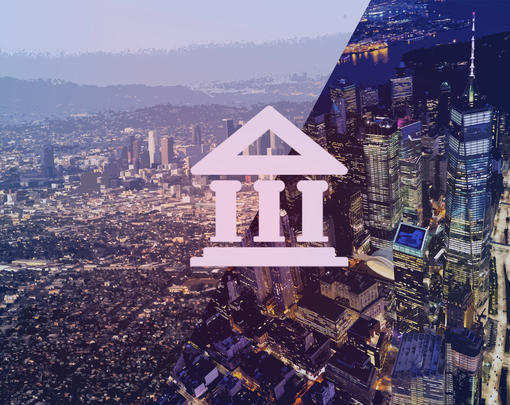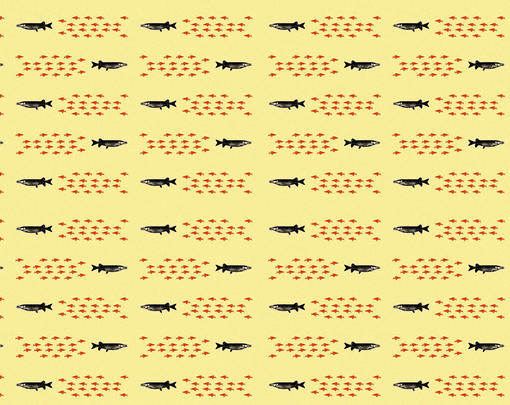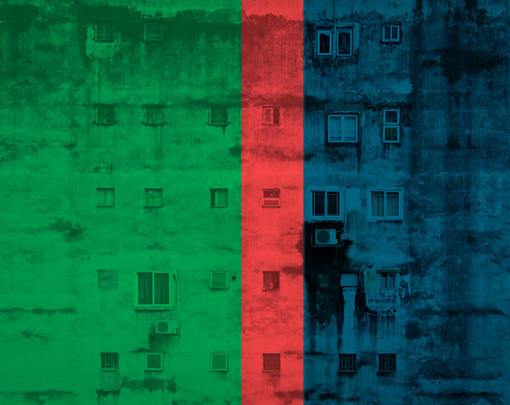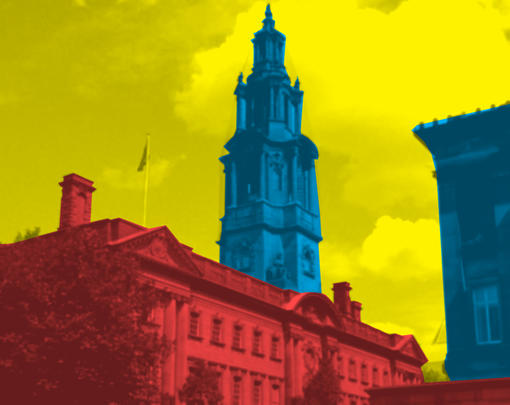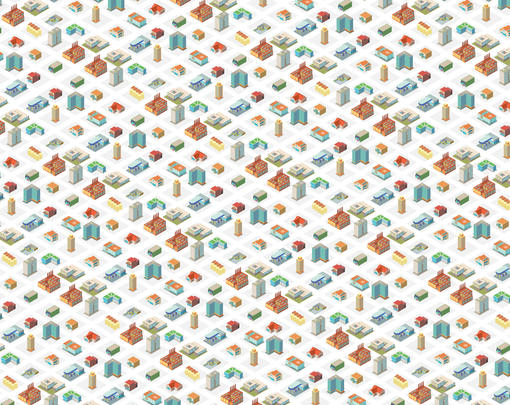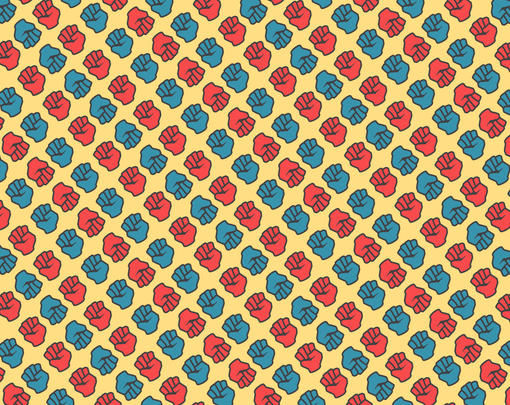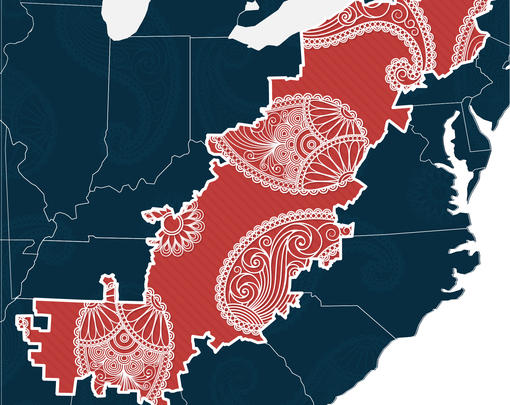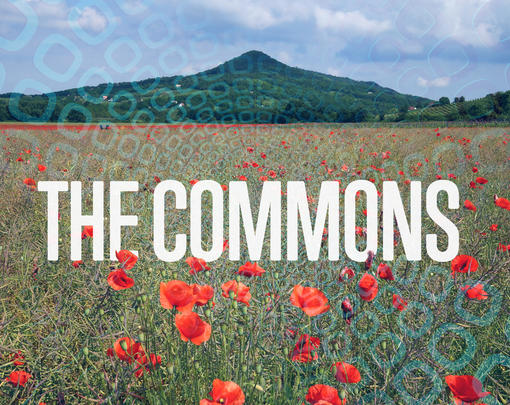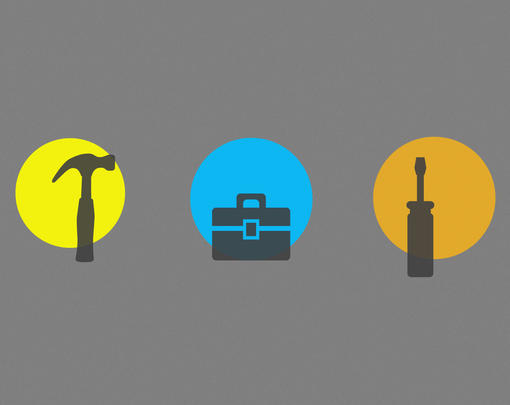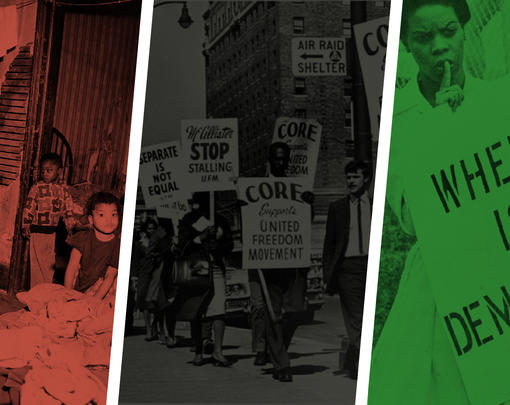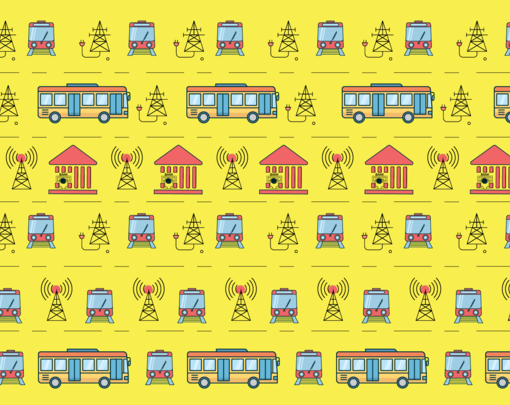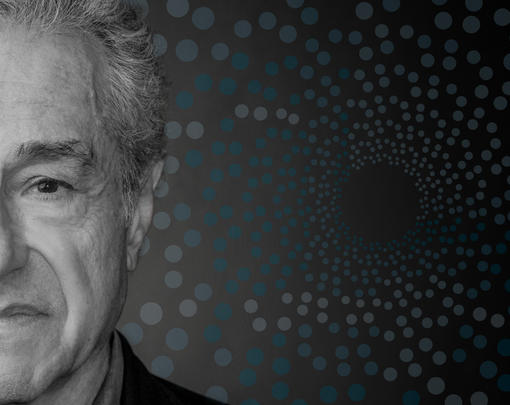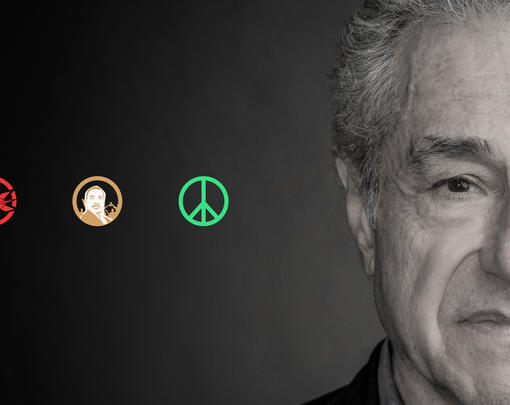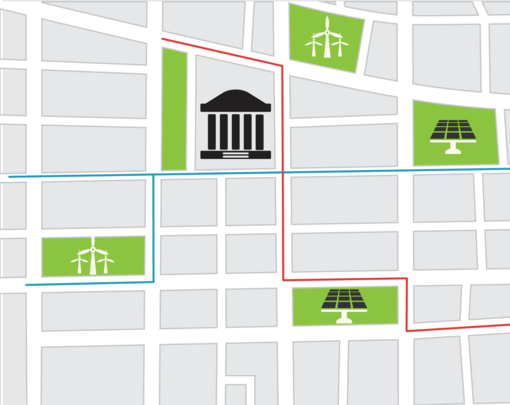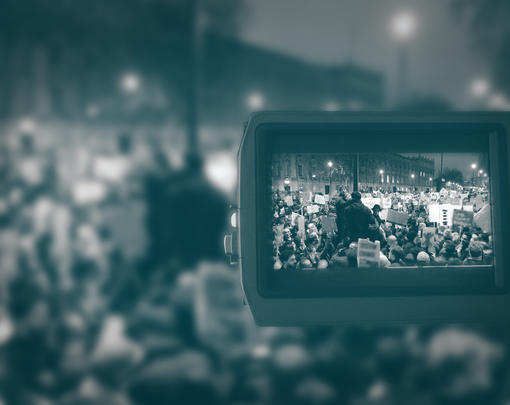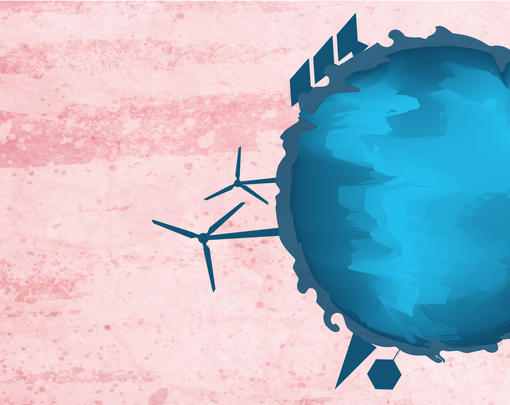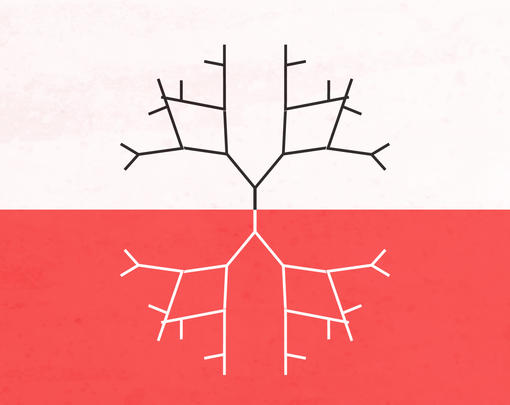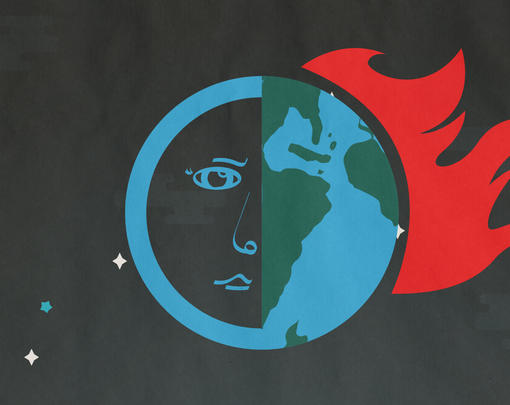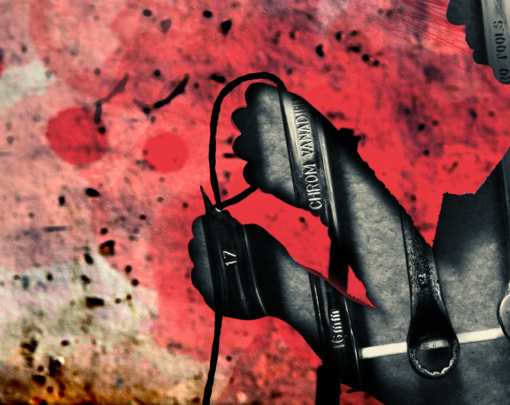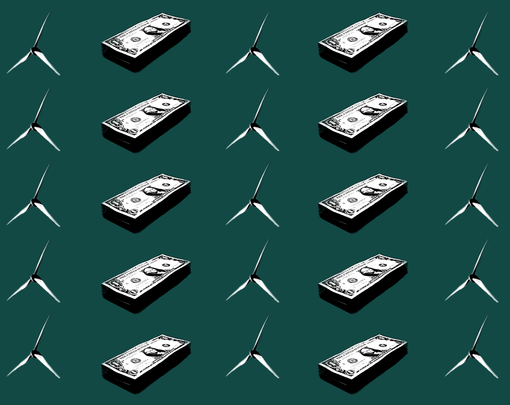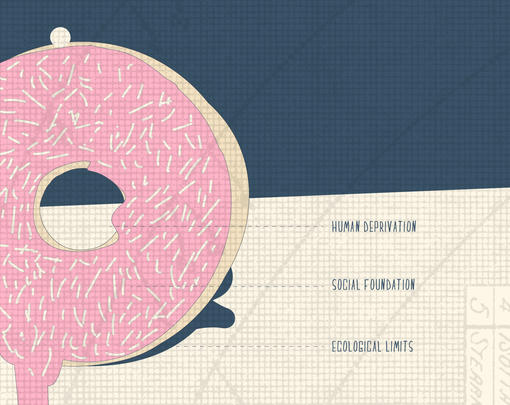This week on the Next System Podcast, Adam talks with Max Rameau about his article “Community Control Over Police: A Proposal,” part of the Prisons and Policing: Systemic Challenges & Alternative Visions collection at thenextsystem.org.
Subscribe to the Next System Podcast via iTunes, Soundcloud, Google Play, Stitcher Radio, or RSS.
Adam Simpson: Welcome to The Next System Podcast. I’m Adam Simpson. Joining me today is Max Rameau, a Haitian born Pan-African theorist, campaign strategist, organizer and author of Take Back the Land: Land, Gentrification and the Umoja Village Shantytown. Max is here to talk with us today about his piece for The Next System Project on community control of police. This piece was part of a series called Prisons and Policing: Systemic Challenges and Alternative Visions. Max, thanks so much for joining me today.
Max Rameau: Thank you so much for having me.
Adam Simpson: Great. Well, Max, I want to ask a little bit about your background. Before we talk about community control over police and your article about that, it’s worth mentioning you’ve done a tremendous amount of work around community controlled housing as well. I wanted to give you a chance to tell the audience a little bit about your background as well as in particular your experience with the Umoja Village project.
Max Rameau: First of all, in terms of the theory that we had and the way that we thought about the issue, we thought about community control over land, not just housing. Housing then is a function of land, just like commercial property is a function of land, just like the commons or recreation places are a function of land, agriculture, et cetera. All those are functions of land.
Until and unless we’re able to address the fundamental problems in land relationships, we’re not going to be able to solve the problems of housing relationships because those all stem from land relationships, the land relationships upon which the housing is built. That is the issue we have to address.
We had, of course, a severe housing crisis, a crisis of gentrification in the early 2000s—all across the country really, but Miami, Florida was leading the way, and I was living there at the time. We were in crisis mode in the black community, and we had to come up with some way of putting some brakes on gentrification and runaway housing costs, and the extent to which those factors were destroying our communities or seriously damaging our communities and forcing us out of them.
Adam Simpson: On that note, considering these crashes and crises have become a regular feature of modern capitalism, what would you say that communities can learn from the Umoja project in the event of another foreclosure crisis?
Max Rameau: What we did with the Umoja Village is during this crisis, during this time of runaway increases in land value and housing value where people literally could—in Miami, this was literally the case—could buy a house one day for, say, $50 or $60,000, and six months later, you’d sell it for 100% profit—and now that house suddenly costs $100-$200,000. Which of course means that the people who could buy it at $50,000 can no longer afford to live there once it’s up to $100-$200,000. How are we going to stop that?
What we did is we seized control over a vacant piece of land in Miami, Florida, and we built an urban shantytown there that we call the Umoja Village. The Umoja Village stood for six months. The city tried to push us out but was unable to, and ultimately the Umoja Village fell to a fire, which most people believe, including myself, that the city was responsible for setting.
I think the lesson that we learned there is that we don’t always have to look outside our communities when we have a crisis in our communities or when we have issues that need to be solved. We don’t always need to look to government structures to solve these problems. We need to think about how we can solve these problems on our own.
We were under the impression that the government was largely, if not primarily, responsible for the housing crisis and the crisis of gentrification that we were enduring. Many people believe that and yet many of those same people then turned around and said, “Okay, we have demands of the government to solve the problem.” Well, if you think that they are responsible for the problem, then it seems a bit challenging, a bit of a stretch, to think that they’re going to be the ones who will be responsible for solving the problem that they created in the first place. I think we need to ask: what are the things that we can do inside of our communities, that build capacity in our communities, that build power in our communities—the ways that we can solve these problems ourselves.
We solved some problems associated with street homelessness in Miami by building the Umoja Village shantytown. Of course, we did not solve all of them, but we certainly proved and demonstrated that we don’t have to make demands all external. There are some things that we can do ourselves inside of our communities, and we should be pushing for those things. That’s what organizing is actually about. Organizing is not putting pressure on those who are in power but not using it properly to change their ways. Organizing is about how we take power, we implement the power ourselves.
Adam Simpson: I was reading your book, Take Back the Land, and as a way of transitioning to our broader discussion about police, the role of police in this story and the role of the people and the interest that police represent played a tremendous role in the end of the Umoja Village project. I wanted to ask you about your experience with these particular institutions and what that experience says to you about the role of police in society and the way that we organize our communities.
Max Rameau: It was very interesting because when we did the Umoja Village, it was, as you can imagine, completely and totally illegal. We seized control over vacant land. What happens when you do something that is illegal, the police come and they enforce the will and the mores of those who are in power or those who are in power over that area. We had constant interactions with the police.
It was also extremely interesting as we had these confrontations with the police where we could recognize that while there were some institutional things that the police may have wanted to do, they had to do something else, which was what those who were in power wanted to be done. There were also conflicts with what individual police may or may not have wanted to do, and they didn’t really have a say in it because they had a job to do, and their job was to arrest people or to kick people out.
I think some of the things that we found interesting was that as much as we dealt with the police, as much as we were confronted with a confrontation with the police, we could not actually solve our problem by talking to the police because they didn’t ultimately make the decision. They were the muscle, they were the ones responsible for enforcing the actual decisions; not the ones response for making the decisions.
At some point, we recognized that we couldn’t spend all of our time arguing with the police because that wasn’t actually how we got things done. That’s not the way wealthy people do it. When they have a problem, they don’t talk to the police about it. They go and they bribe an elected official and they change the law, and then they no longer have to deal with the police. We need to get to the point where—not that we could bribe an elected official!—but where we could change the rules so that the police’s role was completely mitigated.
Adam Simpson: Well let’s move to your paper, which presents a model for community control over the police. Before we dig into that solution I wanted to ask you to define the problem in your own words. How do currently existing police structures fail the communities that we are told they serve and protect?
Max Rameau: Well I think they do so really in one fundamental way, but even before saying that, let me back up and say that one of the premises that we hold is that the black communities in the United States are a domestic colony. Think about colonies, the American colonies or colonies in Africa or South and Central America, people generally think about a relationship where you have a European country or some country far away controlling and dominating another country in another location, another land in another location.
Really, the primary rule or the primary characteristic of colonies is not the distance between the colony and the metropole. The real primary relationship has to do with who has power, how that power is exercised, and to whose benefit that power is exercised. We think the black communities in the United States are a domestic colony: we are oppressed and treated in the same ways as colonies are all across the world.
I think if you look at the way black communities relate to the police, it has more in common with the way people in occupied Iraq and Afghanistan relate to the US military than they do to the way wealthy white people relate to the police who patrol their neighborhoods. The first problem is that. If we are in occupied territory, then the police are the occupying army, and that is the role and function they play.
In that context, the only real problem that exists is that black communities don’t actually control the police. No colony controls its occupying army. When we look at the American revolution—the Boston Tea Party, George Washington, etc.—they were all fighting against an occupying army and they didn’t try to join the occupying army. They didn’t try to become members, they weren’t making demands that more people who were born in the colonies get to be in the occupying army. They were saying, “We don’t want an occupying army. We want to make some decisions for ourselves.” I think that’s the same way we can think about it.
I don’t think that the main problem with the police shootings and the hyper arrest numbers in of the black community have to do with primarily anyway with racist police or racially prejudiced police or even with some specific laws, although those are all factors. The real fundamental problem is that black communities do not have any control over our economy, over our political system, and ultimately over the forces that enforce that economy and enforce those the decisions of those political systems.
Adam Simpson: When we look at this through a colonial framework, so the police as an occupying force, what does this tell you about the economic relationship between the colonized and the colonizer? What are the implications of this relationship toward the broader capitalist system?
Max Rameau: Yes, great question. Yes, the colonial relationship is ultimately an economic one where there’s an economic domination of one society by another in order for that other society to gain some material benefits. The same thing exists in black communities here.
If you look at the way cities are set up all across the country, you have a city where there are high concentrations of wealth with big buildings and banking sectors and things like that. Generally speaking, next to them, within a mile or less away from downtown centers, you have low-income black communities. Well, why is that? That’s because historically there has been a need for low-income labor to be right next to these downtown cities in order to do childcare for the people who are working there, in order to sweep the floors, in order pick up the garbage, and all those other things. We are a cheap labor source in the same way that colonial subjects in the traditional setting are cheap labor forces.
We are also an area where there is product dumping. There’s product dumping when you have meat that is rotting in wealthier whiter neighborhoods. That meat is shipped off after the due date and put into low-income communities so they could be sold there without any loss of capital. There are all kinds of dumping of other products as well.
There’s also a dumping of toxic waste. People have heard the term environmental racism. Well that only happens where they don’t have the power to say no—like when trash that is accumulated in the United States is dumped to places like Haiti and other third world countries. Whenever we have ecologically sensitive activity happening inside of urban areas, they go to black communities, Latino communities as well, but certainly into black communities.
Finally, we also provide raw resources—and that has happened significantly in terms of the prison industrial complex where we are the bodies that are needed in order to make payments on the prison industrial complex. Without the black bodies that are serving as the raw material for billing inside of the prison industrial complex, the prison industrial complex, certainly the privatized portions of them, would collapse almost overnight.
Adam Simpson: How will you understand the notions of ‘crime, criminals and criminality’ within this framework? How do we define these notions within our current system?
Max Rameau: Well so, of course, the technical definition is that crime is anything that’s against the law, but the real question is then what is the law and who makes the law? The law is simply the majority opinion of the ruling class. Whatever the ruling class is able to decide to come up with this item in their opinion, they’re able to then turn into law, and regardless of what the overall public sentiment is.
For example, we are here just a few weeks after net neutrality has been struck down. Net neutrality is something that has an incredible amount of public support. Polls say 80 or 90% of the public supports the idea of net neutrality. Small businesses support it. It seems like a bunch of elected officials support it, and yet it was struck down. Why? Because there is a small number of extremely powerful businesses, business interests that are able to exert their will and exert their wishes on to the legislative machine in this country.
If 80% of the people say, “We do not want this,” and 1% of the people say, “We want this,” and that 1% is able to exert their will over the 80%, then this is not a democracy. This really is ruled by the ruling class. Even if it was democratic, the idea of the law being the majority opinion of the ruling class still would apply. Just what the makeup of the ruling class looks like would be a bit different.
In this society, particularly in the context of capitalism, those things that are against the law, that we have the greatest numbers of rules around, are going to be around property, the maintenance of property, and the maintenance of the ability to generate profit. Things that stand in the way of generating profit are going to be under attack. In the context of capitalism, what can advance or block profit are the things that are going to be the center of what is legal or illegal or criminal or not criminal.
Adam Simpson: When you put it like that, it immediately reminds me that the origin of police in the United States is very much connected to the institution of slavery where human beings were in themselves property, as well as the frequent use of police forces to crush the demands of organized labor.
Max Rameau: Yes, that’s exactly right. It’s difficult for most people to imagine a society without police. Well, until relatively recently, most societies did not have police in them. Most societies didn’t conceive of the idea of police. It was really advanced in the United States and in Australia as a colony where the ideas of policing and prisons really were taken and tried out, were tested and refined until they were… If you want to call it perfected, you can call it that.
That’s right. The very first way in which police were used was something that we could recognize as police in the same way was these slave patrols. The role of police certainly grew as the labor movement grew with the acceleration of the industrial revolution, especially in the early 1900s.
Adam Simpson: After all of that, this next question might sound a bit naïve, but there are numerous reforms proposed to mitigate the harms that police do to communities—from emphasizing diversity in police forces to changing training and equipment to community review boards. Why are these types of reforms in themselves inadequate in your view?
Max Rameau: The types of police reforms that are pushed from getting more black police on to the force to getting diversity training to some of the review boards, all even if they have some individual value by themselves, all miss the point entirely. That point is that there is an imbalance in the power relationship between the people who live in a neighborhood and the people—who are paid by the people who live in the neighborhood, by the way—who patrol it with guns and with the right to seize people in that neighborhood and cart them off into a cage.
The people who have the guns have all the power over the people who live in the neighborhoods, rather than the other way around. Until we change that, all the other stuff is window dressing. There is no reform that is going to cover up or dress up that fundamental fact.
In fact if you look at other colonial settings, certainly in the fight against colonialism in Africa in the 50s and 60s, there were no colonial subjects making these kind of demands. People weren’t trying to get out under the yoke of colonialism by saying we want more Africans on the British occupying army. No one said that—it was not a demand of anyone because no one thought that would work. What they wanted was the end of colonialism.
They didn’t want the colonial army getting diversity training. What they wanted was the colonial army to leave and to allow the people to exercise their own rights and exercise self-determination.
I think in the same way we cannot expect if there is a relationship where the job of the police is to protect white communities from the black communities that those police are patrolling, then there is no way diversity training will solve that. The black police who go into black neighborhoods as police officers and refuse to arrest black people will be fired for not doing their job. Getting more black police on the police force is not actually going to do anything; it just means that more black police are going to be arresting more black people rather than more white police arresting more white people.
We have to address the fundamental underlying issue, and that is the lack of power inside of black communities.
Adam Simpson: From there it brings us to the notion of community control, your proposed solution. Your solution to the dilemmas that we’ve discussed is placing police under the control of communities that they act within. What does such a system of community controlled police look like in your own words? How would you describe this?
Max Rameau: There’s a number of ways that this can be implemented. The overall idea is that the police as a force should be democratized in a real way. The control over the police should be democratized. That would then change the power dynamic.
There are some limits to what it is we’re proposing. We’re not proposing a wholesale change in the way things happen in the United States. This particular proposal has only to do with the way the police operate, and particularly inside of black communities. The way that we see this happening the way forward, so to speak, on this issue would be to have local communities, say a city, divided up into policing districts. It could be three, four, five, it could be ten, it could be whatever number makes sense. Those policing districts can be identical to current city districts or city wards, commission districts or they could be completely different. They could be organized whichever way.
Then each district would then get a vote, and in that vote, they would say, “We want to keep the police that we have now or we do not like the police we have now. We want to dump them. We want to get our own police force. We want to have our own force that actually does serve and protect us that we have power over rather than this other one.”
If a district votes to keep the police, this would be just like single member districts in any city. In single member districts, those who are in district two vote for their council member or their ward or their alter person. The vote that they have in district two has no impact on district five or district seven. They vote for district two.
In the same way, those who vote in district two to keep their police will get to keep it and nothing will change for them. Those however in district five or district seven or district eight, whatever other districts who decide to vote against the existing police force and for their own, would then get a new police force. That community would have control over the force, and that community would have the ability to determine the priorities, the policies, and the practices of their own force rather than accepting the priorities, policies, and practices that are imposed on them by other communities.
Adam Simpson: The model here will be to create in these areas that would vote for their own police force, a local police force, if you will—or, we should emphasize, a community controlled police force. This would be accountable to a civilian police control board, a CPCB, if you will. Now I want to ask who in your mind would serve on the CPCB?
Max Rameau: The community police controlled board would be the board that oversees it—kind of like a board of directors or even a commission board or however one wants to think about it. This would be made up entirely of human residents living in that policing district. That means human residents mean no corporate representation on it or no church representation on it, but there’ll actually be real life human beings who live in the area, not represented people who own property there or are otherwise there. You have to live there in order to be represented there.
We also believe in a form of direct democracy. We all think that this country has done very well with representative democracy. Those who are elected into office are overwhelmingly wealthy or much wealthier than the general population and much whiter than the general population and much more male than the general population. How do we turn some of that around?
That means that the people who are most impacted by police violence, which are low income black people, black women and black men, are going to be those who are least likely to get into a place where elected officials are. That means you could, in theory anyway, have a control board that deals with the police and police brutality that’s made up entirely of people who don’t actually experience police brutality. Those who do experience brutality have no way of getting access to that board, at least any position of power in that board.
We think that the selection for the board should be based entirely on sortation, which is random selection. Random selection means basically anyone who lives in the neighborhood would put their name in a hat (not literally of course) and then the names would be picked out of the hat. Let’s just say 12 names were picked out of the hat, and those people would then be seated on this board and they would by sheer random chance get a chance to exercise real actual power and make decisions about how the police operate inside of their neighborhoods, how their tax dollars are spent in their own communities.
Adam Simpson:I was really fascinated to read about sortition in your piece. It’s a really fascinating idea, especially when you think of any number of other institutions that it could impact and that we might use this manner of democracy on.
Obviously, the one thing that people, which you addressed in your article, that a lot of people will be uncomfortable with the notion that ‘random people’ would be either in the case of the civilian police control board setting priorities for police or in other context doing other types of policy work. What would you say to people that are skeptical of your ‘average Joe’ being selected for this kind of CPCB duty?
Max Rameau: Well, let me say, I’m of course a supporter of the idea of democracy and democratic participation. I’m a supporter of it not because I think that democracy is infallible, but because I think it is important. I think random everyday people getting to make decisions sometimes has very scary consequences. Let’s be real about this. Random ordinary people got Donald Trump, a complete lunatic, elected as United States President. I’m not entirely sure random people should have the ability to do that, but they do.
I think there’s a couple of things here. One, the question is how do we best get people who are normally excluded from the political process included in the political process. This is one of the ways of doing that. I think this could be the most effective way of doing that because it’s a way that cannot be tainted by corporate money and cannot be tainted by the biases that we all hold. If we saw two people speaking, one who was able to wax eloquent, just off the cuff, but had some particular interest, business interests or whatever that could shade their ability to make objective decisions for people. Another who was not able to express themselves as well, but didn’t have any ties that made it difficult for them to make objective decisions; in fact was very earnest about it.
Then people would vote for the well speaking person even if that would ultimately be more harmful for the democratic process or more harmful for them in particular. There are biases that are created by money and there are biases that exist in all of us that then prevent real democracy I think from taking hold. This would increase its chances.
Second thing is that there are many places in which random people are able to make decisions. Again, this is a very scary notion for me in some ways as well. I just want to acknowledge that, but the idea of random people making decisions, and this is important exists right now, right here right now. Today if you were arrested by the police and you were brought to court and charged with anything, or particularly the higher charges like murder or something like that, twelve randomly selected people would get to decide if you go to prison for the rest of your life, if you get the death penalty, or if you walk free after killing someone. Twelve randomly selected, unqualified people will get to make that decision. If we allow twelve randomly selected, unqualified people to make decisions like that—who gets to walk the street and who gets the death penalty and who gets to spend the rest of their life in prison—we should certainly allow twelve randomly selected people to say, “This is how I want my tax money used. If people are going to walk around my neighborhood with guns, this is what I want them to do and this is what I want them not to do.”
I think this is really a step down from the jury system in a significant way, but it’s also a step up for active participation in a democratic society.
Adam Simpson: In reading about this kind of program, I’ve always thought it was really interesting in the way that you could design it to be completely inclusive and you get representation for people that otherwise would normally not have it. Whether that be along race and gender lines, along class lines. I’ve often heard it said, “This is the only way you’ll get like pipefitters and teachers making law and then making decisions like that.” It’s always been a really fascinating idea to me. I just loved reading about it.
Max Rameau: Just so it’s clear, there’s been many studies done, including a joint study done by several Ivy League universities, that suggested that sortation might be a better way to run regular government than the system that exists now. The system that exists now in the U.S. Senate, for example, has 100 people in it. The majority of them are millionaires—while in the rest of society, something like just 3 or 4% of the population are.
We do not really have elected officials who are representative of the general population. How do we get them represented? Anyway, there are these studies that suggest that sortition could be a better way of getting both representation and actual functioning government.
There was a study done that suggested that, given the way the US Congress is divided right now, in terms of a lack of bipartisanship and the lack of ability to make basic decisions like keeping the government running. There were polls that said that people were under the impression that if you would replace the existing electoral system with creating a big, gigantic board from the White Pages and take 435 darts and just throw the darts at the board, whatever names that the darts randomly landed on would then become your members of the US House of Representative. That would work better than the current electoral system.
This is an idea that I think is going to grow and it’s going to expand to different areas of many societies including this one.
Adam Simpson: Well one question about this program. Seeing as many of our cities right now are heavily segregated along various intersections, in particular race and class, is there a concern at all about the possibility of the emergence or replication of more draconian police forces from CPCBs in more privileged areas?
Max Rameau: Yes. We do have a big concern about that, and we in fact think in the initial rounds, these could actually be the first ones that pass. If we are to have these type of elections where a city were to divide itself up into policing districts and each district would vote whether or not to replace the police with a community controlled police force, even though black communities would make the push to get it, we think that there’s a better chance of white communities in some of these areas would vote for it. Then they would try to make their police more racist in their behavior and more brutal in their behavior than they are right now.
This is a big concern. We would have to create some mitigations for this. In our proposal is that this board, the community police control board, would not have the ability to change laws or make laws. The police would still have to enforce existing laws. That means we’ll have to enforce bad laws and they would not be able to create new bad laws or enforce these bad laws. That should be one of the stops, but we would have to actively search for other ways of preventing this kind of thing from happening.
We do have some ideas, which we’re not ready to talk about probably yet, but this is a major, major concern of ours. Particularly given the right wing turn, hard right turn that this country has taken, this is not an unlikely scenario.
Adam Simpson: My next question was about the notion of different areas in a given location having different CPCBs with different priorities et cetera. This feels like a conception that’s very much suited to cities. Do you think the model would take a different shape or have you thought about what this model looks like in more rural settings?
Max Rameau: Yes, there probably would not be such a big shift in what the priorities et cetera are in rural settings because in more urban settings, for example, there is a heavy priority in downtown districts placed on police going after the homeless. The same laws exist throughout the whole city or in the entire county, but there are some areas where there are more homeless people inside of a city or county than others.
There in those policing districts, there’s a greater priority as the police call it on attacking the homeless. That wouldn’t happen—not the homelessness, but the split in what priorities might be, may not happen the same way in the rural areas. I think that’s why we have to give local communities the power to make decisions about what their priorities and what their policies are actually going to be. We would then trust both the urban areas to handle that power properly, and we’d also trust the rural areas to handle those powers properly. We would have the same concerns that there will be some urban areas that don’t handle it properly and there will be some rural areas that don’t handle it properly as well.
Adam Simpson: Well this notion of smaller CPCBs and districts that have what we might say, just to put it generally, bad outcomes or at least worse than what we’re looking for. I know that, for instance, right now there’s all kinds of overlapping jurisdictions among police departments. Whether it’s at the state or the county level or even overlap between close municipal zones, and we’ll add to that FBI or whatever. In your mind could this overlapping undermine the local sovereignty model of this proposal or is there a possibility that some degree of overlap could provide for a system of accountability?
Max Rameau: I think it would probably have some combination of the two, and it will of course depend on who the overriding power is. For example, in Miami-Dade County where the city of Miami is located, there are over 30 municipalities, and almost every one of those municipalities has its own police department. The county, Miami-Dade County, also has a police department. The county police department has jurisdiction over the entire county, including every city. Each city has jurisdiction over only itself. Two adjoining cities like Miami and North Miami, for example, would not have jurisdiction over each other. They would only have jurisdiction over themselves, but Miami-Dade would have a jurisdiction over both of them as well as all the other areas.
I think in terms of what some of the conflict areas are and accountability areas are is then that the county would then supposedly be able to provide some accountability. Although my guess is that they would apply that accountability differently in white communities as they do in black communities, which they do today.
There would be some checks. I think it will be conflicts in the exact same way that there are now. Because the accountability is applied differently, there’ll be conflicts as well. I don’t know how those will be resolved, but then that just really speaks to the necessity to grow power beyond just this one area. We’re going to have to be able to say, “These are our rules. This is what we are doing and we have the right to implement them the way that we want here locally.”
Adam Simpson: My final question is in this context, let’s say that the CPCB proposal, this takes off in a lot of different ways. Let’s say this model is adapted and it’s almost ubiquitous. How do you think that the CPCB model would change the broader economic relationships and capitalism, which we’ve talked about is defined in some sense with people of color and communities of color as a colonial relationship? How do you think that this idea would fundamentally change the broader system of capitalism?
Max Rameau: Just so it’s clear, this proposal does not change the broader system of capitalism in any way, shape or form. You can think that’s great or you can think that’s terrible, but it does not. It is very limited and very narrow and only addresses creating explicit powers over the police. It would change the explicit powers over the police such as who is actually making the decisions, setting the priorities, the policies, and enforcing the practices of the police department. That’s all that would change with this proposal.
With that said, what we think is going to happen is that by controlling the police, we would change a number of internal dynamics inside of our communities. Currently, if you live in a black community and you are low income, you are constantly being harassed by the police. If we have control over the police, I think that would change, and that would change because people in those communities would then want to and have the power to reimagine what a force in their community could look like or what it could do.
We would basically be able to go out to the community and say, “Okay, you now have 100 community organizers available to you. They all have cars, they have a radio system that allows them to communicate with each other. They have resources. They even have guns. What do you want them to do?” Some of the things I think that would happen would be that we’d say, “We want police to stop harassing people who are enduring lives of poverty.”
I think it will free up time, space, and mental space for people who are poor and who are constantly running into police violence. We talked about the law before, the intersection of law and property. It will free up time and mental space for people who are in those intersecting areas who, for example, because they don’t have a place to live, the only place that they have to go to the bathroom is on the side of a building. Well, currently the police in downtown areas have to protect that building over everything else, and their primary job then becomes to make sure that this series of bricks or this arrangement of cement is not somehow damaged by human urine, and they have to protect it.
While a new force that is re-imagined by a community would say, “Okay, the real problem here is not that a building is being damaged by human urine, but that there’s a human being who’s being damaged to such an extent that that person has nowhere to go to the bathroom, but on the side of this building. How do we solve that problem?” They could sic the police on that, sic the police on poverty, rather than siccing the police on the poor. That will change the dynamic for individual poor people, and that would I think then create space for real organizing to happen in our communities.
When you have significant organizing happening in communities, the police begin to infiltrate those organizations and undermine them and ultimately destroy them. This would allow organizing to flourish inside of communities who are no longer going to be hampered by the police, who are no longer going to be stopped by the police, but could actually be in some ways supported (a best case scenario). Even if it’s just left alone, if organizing is just left alone inside of black communities, that will be a complete game-changer.
I think that’s going to be the primary change. This would not change capitalism or the relationships inside of capitalism, but this would create political space and emotional space that would then allow people to organize in a way that could do that, if that’s what they wish to do.
Adam Simpson: Well Max, that’s all the questions I have prepared for today. I’ll recommend our readers again to check out your piece on thenextsystem.org. I think it’s a fascinating piece and a fascinating idea. Before I let you go, is there anything else you’d like to add for our listeners before we conclude?
Max Rameau: I think the other thing is that we need to start thinking about the problems impacting our societies in terms of power and who is in power. Then we need to address them in ways that change power, that shift power from those who currently have it to those who don’t have it and those who need to have it in order to exercise their humanity and to realize some sort of justice.
I think we need to have campaigns around community control over police. We also need to have campaigns around community control over land and community control over our resources, including our labor. Those are going to be the big fights of the future. We need to be fighting for power, not fighting for reform inside of a system that doesn’t work well. We should be fighting for power, and that’s what we must design our campaigns around, and this can move us in that direction.
Adam Simpson: Thanks so much for that Max and thanks for joining me today on the podcast.
Max Rameau: Thank you so much.
Adam Simpson: For our listeners, we’ll see you next week on The Next System Podcast.
